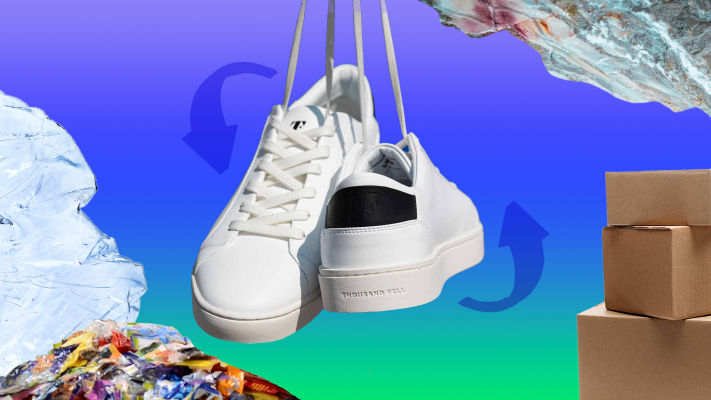The business community is never considered an ally of the planet. But certain brands like H&M, Ikea, Adidas, and Burger King embraced circular economy so that nothing becomes a waste and an end of something can be transformed into a new beginning.
Have you ever heard about the circular economy? If yes! Then the possible question that arises is – what exactly circular economy is and how it helps us in reducing waste? It might not be wrong if I say that the saying – one person’s trash is another person’s treasure – is undeniably true in the case of circular economy. This kind of economy demands a radical change in the perspectives of people and companies when it comes to dealing with lack of resources, environmental impact, and value creation of available assets.
A circular economy basically takes the production processes into consideration and outlines how to reuse, repair, and recycle items, thus increasing sustainable manufacturing and consumption of resources. It usually works on a new model of production and utilisation of goods and services associated with sustainability through the take-make-dispose model of consumption.
By reusing and recycling, plus repurposing and selling on items that have already outlived their initial use. A circular economy lets the resources stay in the economy for as long as possible, by easing the pressure on the environment, simultaneously it also helps in the creation of jobs and maintaining economic activity.
The business community is never considered as an ally of the planet, but at the same time, it has a significant role to play in the protection and destruction of the environment. Today, when coronavirus pandemic has challenged various companies and brands to do more to support their communities while bracing against economic disturbance, many refused to let their sustainability ambitions fall by the wayside.
But there are still some organisations and brands that in their bid to protect the environment believe in the creation of a circular economy so that nothing becomes a waste.
1. Adidas launches its fully recyclable sneaker:
It seems like shoes are getting more and more specific these days. Adidas shoes are known for their innovation and customer satisfaction. But this time, the sports brand has a range of footwear designed with recycling in mind. The sportswear giant in October 2020 launched a fully recyclable sustainable running shoe as part of its ‘Made to be Remade’ project.
Adidas now has its fully recyclable version of its UltraBoost running shoe, made from a single material without glue. The company describes the UltraBoost Loop as the shoe customers will never own, but instead can return them once they are ‘finished’ with them.
UltraBoost DNA Loop is not just a shoe, it’s a movement. It’s a shoe that defines a better future where it can be remade and the end can be made the beginning. Not only this but in the year 2019, the footwear giant also sold 15 million pairs of sneakers made with plastic collected from beaches and coastlines in partnership with Parley for the Oceans.
2. Burger King tests reusable packaging:
Burger King is planning to test reusable containers this year as part of its efforts to reduce waste. Through this reusable packaging, Burger King is trying to cut the sustainability challenge that the take-away meal packaging possesses on the environment.
The reusable containers and cups, for now, will be introduced at selective Burger King outlets in New York, Portland, and Tokyo. The fast-food giant is planning to add more cities following its first three locations in its bid to reduce the amount of waste the organisation is generating.
3. Ikea buys back your old furniture for resale:
Ikea approximately a month ago, rolled a large furniture buy-back program for its customers that allows customers to sell back their used furniture to Ikea stores around the world in exchange for store credit. This new initiative aims to help reduce the number of home furnishing products usually thrown out. The program is part of IKEA’s push to promote the company’s efforts to reach its 2030 climate targets.
4. Food waste and other materials gathered in H&M’s new collection:
H&M in order to achieve its goal to source exclusively sustainable materials by 2030 and become “climate positive” by 2040, takes recycling to a new level with a line of clothing and accessories created from materials, including food waste and other stuff, that had been destined for the trash bin.

